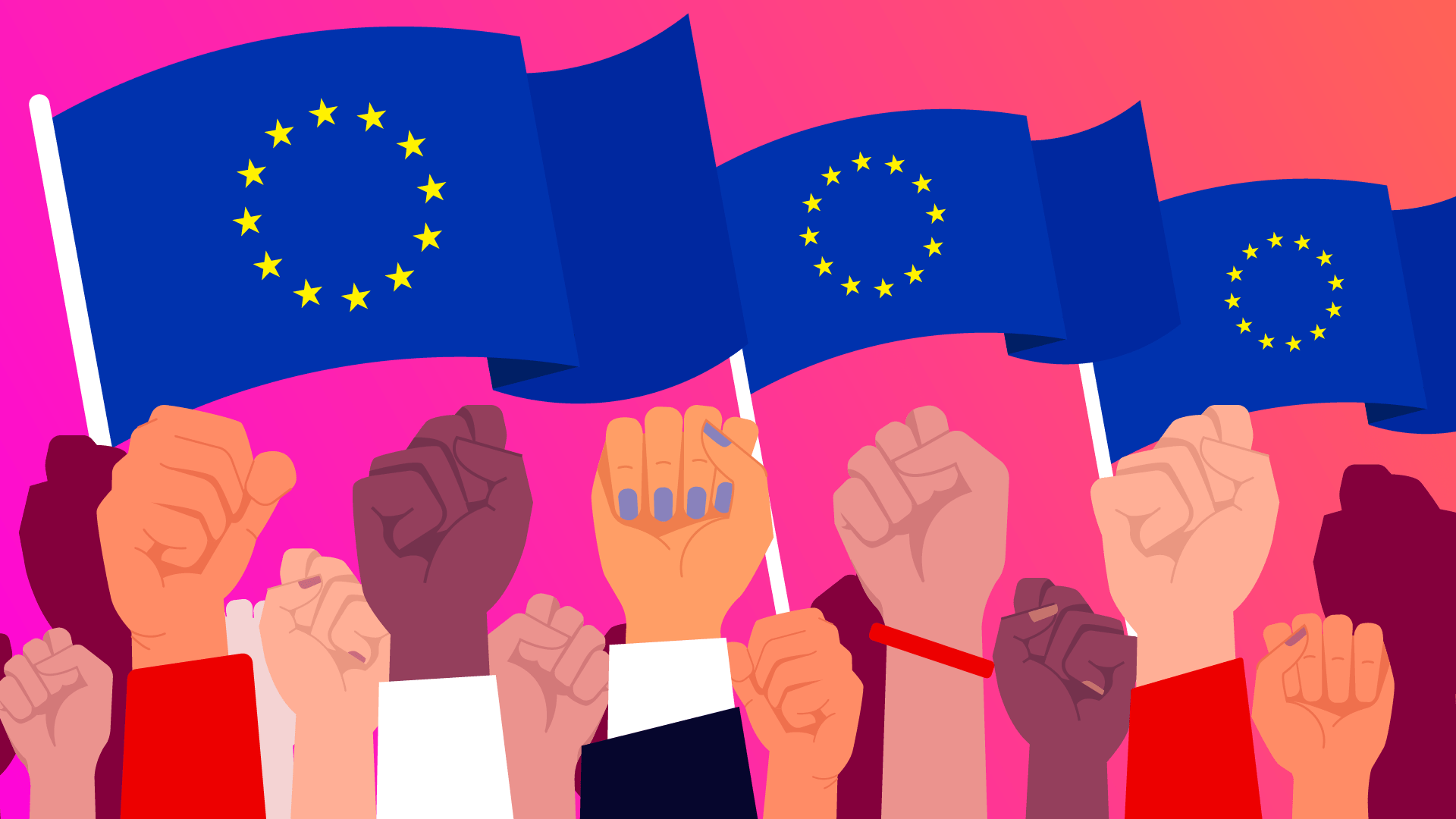
With the Digital Services Act (DSA), we have made all online platforms responsible for the content they display. We have banned online advertising that relies on profiling based on sensitive data. Targeted advertising aimed at minors will not be allowed anymore. Social media has to give more transparency and information on their recommender system’s algorithms and have to give options for alternative recommender systems.
The General Product Safety Regulation aims to ensure that all products that consumers can buy offline and online (toys, scooters, wireless earbuds etc.) on the EU market are safe. The S&Ds ensured that every product on the single market has to have a responsible person that ensures the safety of products and their compliance with the EU’s safety standards, including for products that are directly imported from third countries. In case of product recalls, operators have to give consumers at least two options out of replacing, refunding or repairing.
Thanks to the revised Product Liability Directive, the S&D Group managed to adapt the old rules to the digital age. Thanks to our Group, consumers will be compensated for damages caused by software driven products (e.g. antivirus, standalone software), damage to their psychological health, or by the loss and/or corruption of their data. Furthermore, online marketplaces will be liable for defective products and in cases where no compensation takes place. Finally, thanks to the S&D Group, the threshold of proof for consumers when they face difficulties due to the high technical and scientific complexity of products will be reduced.
In the Artificial Intelligence Act, under the leadership of our Group, we added an obligation on companies to carry out a fundamental rights impact assessment before deploying a high-risk AI system so that all risks to individuals’ fundamental rights within the context of use are mitigated before the AI system is used.
We have also prohibited the use of AI for behavioural manipulation, social scoring, real-time biometric identification such as facial recognition in public spaces unless it is strictly necessary for terrorist attacks, serious crimes or the location of a victim of abduction, trafficking in human beings and sexual exploitation. We have also prohibited predictive policing only based on AI or categorising of individuals based on their sensitive personal data.
To clearly ensure that non-high-risk AI systems present in the Union are ethical and human-centric, our Group set general principles on AI systems including privacy, non-discrimination, fairness, social and environmental well-being.
We also empowered individuals by creating an obligation to inform people who are subject to an AI system; a right to receive a meaningful explanation and an obligation to improve AI literacy, which will be necessary for enforcement and democratic scrutiny. We introduced an explicit right to lodge a complaint and the possibility of collective redress.
We are also regulating generative AI systems, like ChatGPT, that can increase the spread of fake news or deep fakes causing harm to people or endangering our democratic debates. Such generated AI content must be clearly labelled in order to clearly inform individuals.
Under the leadership of the S&D Group, we have ensured – via the Common Charger Directive – that consumers will no longer have to buy a new charger every time they buy a new mobile phone, camera or tablet (autumn 2024). We have also expanded the Common Chargers’ Regulation to include laptops as well (early 2026). This is a major victory that will help to reduce e-waste by 11,000 to 13,000 tonnes every year. Despite strong opposition from big players like Apple, the Apple iphone 15, released in Autumn 2023, contains a USB-C Charger and therefore complies with the EU legislation. With these new obligations, consumers collectively will save approximately up to €250 million a year on unnecessary charger purchases.
With the adoption of the Empowering Consumers for the Green Transition Directive we are ensuring better protection for consumers against unfair practices (greenwashing, early obsolescence etc.). About 50% of environmental claims in the EU are vague. This is why, under the S&Ds’ leadership, we are banning claims such as ‘environmentally friendly’, ‘natural‘ or ‘biodegradable’ without proof of recognised excellent environmental performance relevant to the claim. We are banning claims based on emissions offsetting schemes that a product has a neutral, reduced or positive impact on the environment, that are highly misleading to consumers and are frequently used by airline companies. We are moving one step further in terms of the banning of early obsolescence, as we are prohibiting commercial communications about goods containing these practices. Finally, we are making information on the legal guarantee more visible, including a label for producers willing to clearly show which products last longer, to make it easier for consumers to buy more durable products.
Thanks to the adoption of the so-called ‘right to repair’, consumers will benefit from new rights that make repairs more appealing and straightforward after the legal guarantee has expired. Manufacturers will be obliged to repair common household products like washing machines, vacuum cleaners and even smartphones, with the possibility to add more products to the list over time. Repairers and end-users will have access to spare parts at a reasonable price that does not deter repair. Within the legal guarantee, repair will be incentivised with an additional one-year extension of the legal guarantee for having goods repaired.
It is estimated that in 2021, almost 28 million people worldwide were in forced labour – 3 million more than in 2016. Thanks to the S&D Group, the European Union will finally have an efficient and robust instrument to ban products made with forced labour from entering the EU market. This new law will be product-based, not company-based, meaning that all companies will have to comply with the ban if forced labour is detected at some step in their supply chain. This is definitely good news for all companies that suffer from unfair competition from companies that use forced labour. Under the new rules, the Commission will be able to carry out investigations into cases of forced labour outside the European Union, while member states will carry out investigations within the EU.
‘What is illegal offline should be illegal online’. All Europeans should be equally protected online and offline.
We want to create and enforce rules for big tech – to protect users, especially vulnerable ones, and respect fundamental rights. Big social media and online platforms like Facebook, Instagram, X, Amazon and the App Store shall be responsible for the content they host and must take measures to counter illegal content, goods and services.
We want to make online marketplaces like Amazon liable for the illegal products sold on their platforms, and ensure that consumers can buy products that they know will be safe.
We are fighting to create rules to promote human-centric and trustworthy Artificial Intelligence (AI) in Europe. The S&D Group aims to protect people’s health, safety and fundamental rights by reinforcing safeguards, empowering people, increasing AI literacy and, where risks are too high or contrary to our values, ban certain AI systems.
We are promoting laws that fight against the addictive design of online services and prohibit harmful addictive techniques like infinite scrolls or default auto play.
We support sustainable consumption and the circular economy by stopping greenwashing and ensuring that any product that is sold as ‘green’, is actually ‘green’.
We need to ensure that any products that are produced using forced labour remain out of Europe.

